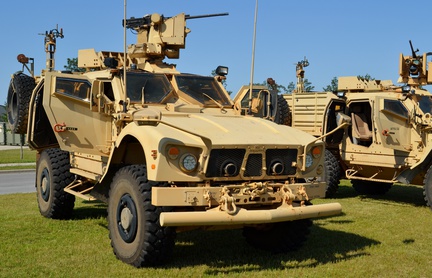
Recently, a South Carolina company, STREIT USA, was fined $3.5 million to settle charges related to the sale of U.S.-origin vehicles to end-users located in multiple countries. The company is part of STREIT Group, which is a global manufacturer of armored vehicles for military, security, luxury and other markets.
As part of the settlement, $1.5 million was suspended. In addition to the fine, the Chairman and CEO of STREIT Group was charged for his role in aiding and abetting in unlicensed transfers and re-exports. The president of STREIT USA has also been charged with causing, aiding and abetting in a false statement to the U.S government relating to a pending license application. The parties involved are now under a three-year suspended Denial Order and must complete audits over the next three years.
The charges were a result of transactions which took place between March 2008 and November 2009, when STREIT Group conducted at least nine unlicensed exports to Nigeria, UAE, Venezuela, Iraq, Afghanistan, the Philippines and Singapore. The exports consisted of vehicles which were retrofitted with ballistic steel and bullet proof glass and required BIS licenses to be exported to each of the listed countries.
In light of these charges, let’s take a quick look at what vehicles are now controlled under the EAR after the changes brought about by Export Control Reform in 2013. Under 0A606, ground vehicles specially designed for a military purpose and not enumerated or described in USML Category VII are controlled under the EAR. In addition to these, unarmed vehicles derived from civilian vehicles (as well as their parts and components) manufactured or fitted with materials or components other than reactive or electromagnetic armor to provide Level III ballistic protection or better, and meeting additional specific parameters regarding weight and transmission, are controlled for National Security, Regional Stability, Anti-Terrorism and United Nations Embargo. Ground vehicles containing reactive or electromagnetic armor are subject to the controls of USML Category VII under the ITAR.
It is important to always review the current regulations and specific parameters under each ECCN prior to exporting any items. If you need assistance determining the classification of your item or determining whether or not you need a license, please be sure to contact Export Solutions for help.
Emmalie Armstrong is a Trade Compliance Consultant with Export Solutions – a firm specializing in U.S. import/export regulations.
